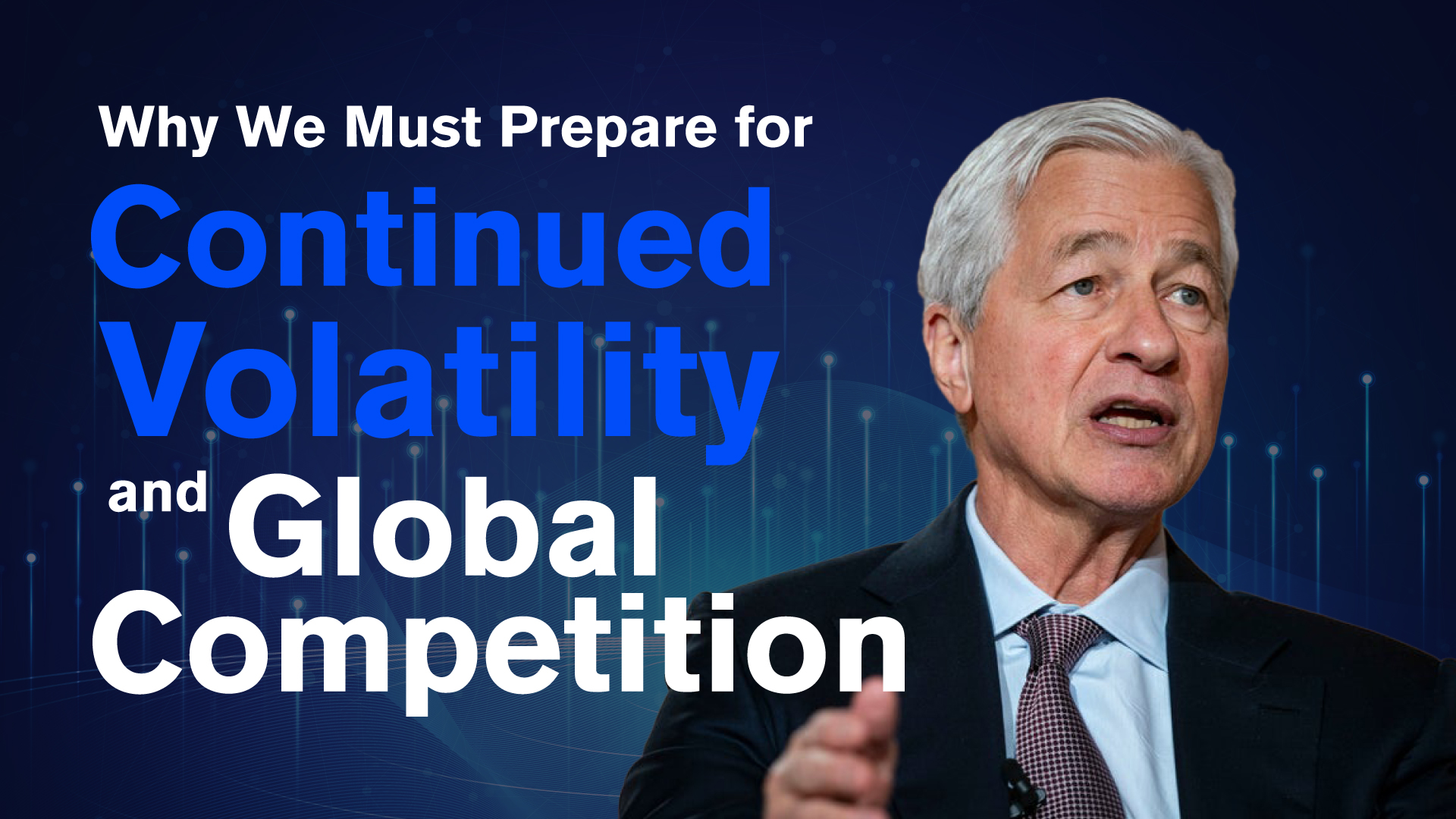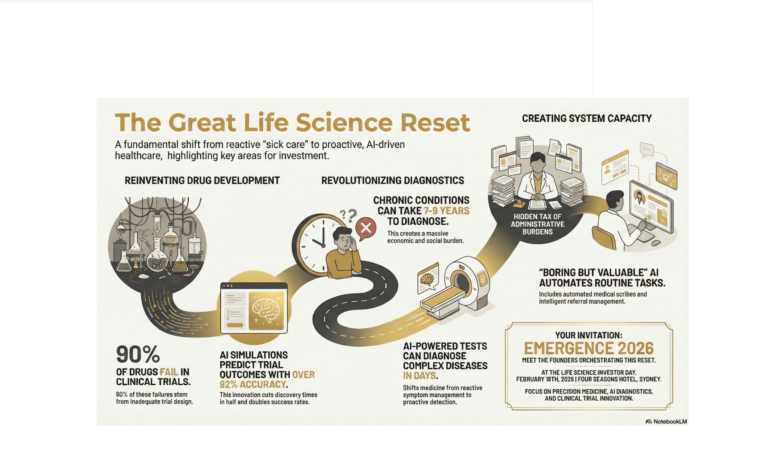News and Announcements

Jamie Dimon: Navigating a World of Uncertainty – From Recession Risks to Geopolitical Tensions
- Published May 30, 2025 12:00PM UTC
- Publisher Bella Battsengel
- Categories Capital Insights, Trending
In a candid interview with Bloomberg, JPMorgan Chase CEO Jamie Dimon offered a nuanced perspective on the current global economic landscape, a panorama he describes as rife with “a lot of uncertainty.” From lingering recession fears in the US to the complex interplay of trade wars and geopolitical tensions, Dimon, ever the realist, painted a picture of a world where predictability remains elusive.
When pressed on what he’d learned in the past month amidst market fluctuations and trade skirmishes, Dimon admitted, “Not much. Other than that, we have all this uncertainty.” He pointed to pre-existing challenges like large deficits, rising interest rates, and inflation, compounded by tariffs and a “very tense, very difficult and hard to resolve” geopolitical situation.
On the pressing question of a US recession, Dimon demurred from offering a definitive forecast, instead deferring to economists who currently put the odds at “about a 50% chance.” He noted that many current factors, including tariffs, are likely to be “a little bit more inflationary and slowing down the economy.” While hopeful a recession can be avoided, he firmly stated, “I wouldn’t take it off the table at this point.”
Trade Wars and Geopolitical Flashpoints
The recent easing of tensions in the US-China trade war was welcomed by Dimon, who believes “the right thing to do is to back off of some of that stuff” and “to have an engaging conversation.” He expressed gratitude for the US-UK trade deal, acknowledging it as an “agreement in principle” that, while still subject to uncertainty, has demonstrably “calms down the markets.” However, he cautioned against seeing market calm as the sole driver for policy, hinting at broader democratic principles. He doesn’t expect an immediate resolution to all trade disputes, but hopes the ongoing 90-day discussions yield positive outcomes.
Looking ahead, Dimon warned against expecting a prolonged period of market stability. “Markets are quite unpredictable,” he stated, attributing this to a litany of unresolved global issues. The war in Ukraine, terrorism, the volatile Middle East (including Iran), persistent large deficits, and the complexities of US tax reform all contribute to this inherent unpredictability. He also highlighted the upcoming EU-UK negotiations as a significant unknown, expressing optimism that they “have a chance to actually develop a great relationship, partially making up for, you know, the disaster that Brexit became.”
Asked about the impact of this volatility on JPMorgan’s major clients, Dimon observed a mixed bag: “Yeah, some, you know, some do have, some don’t. And you know, volatility could be good or bad depending on who’s facing it.” For JPMorgan itself, the volatility has been “good,” translating into increased trading volumes and wider spreads. However, he was quick to temper expectations: “The next go around may not be so good.”
Financials, Competition, and the Future of JPMorgan
Dimon addressed the rising prominence of non-bank financial players like Citadel and Jane Street, viewing them not as a “problem” but as capable competitors and, often, clients. He reiterated his long-held view that banks must constantly assume competition from every angle, including fintechs like Stripe and PayPal. “My view has always been the same. I tell them as you assume competition, assume they’re coming at you from every angle,” he said. While acknowledging that some of these firms are gaining significant market share, he asserted that JPMorgan is “still are too… We’re in the fight. We’re not losing out very much.”
The conversation then shifted to how JPMorgan stays ahead in this fiercely competitive environment. Dimon attributed their strength to “exceptional people in investment banking and sales and trading,” coupled with their relentless pursuit of technology. He highlighted “thousands of technology projects” and “hundreds of AI projects,” all aimed at enhancing customer service and efficiency.
Dimon’s message to his team, and indeed to any business, was stark: “If you don’t move, you know you’re going to be left behind.” He invoked the cautionary tales of once-dominant companies like Nokia, BlackBerry, Sears, Kmart, Bear Stearns, and Lehman, attributing their downfall to “complacent, arrogant” attitudes. “You do not have a divine right to success,” he stressed.
Global Competitiveness and US Exceptionalism
When asked about competition from other countries, particularly Europe, Dimon expressed optimism about emerging leadership. He singled out Keir Starmer, Friedrich Merz, and Emmanuel Macron, praising Macron as “one of the best political leaders on the planet today.” He commended their “pro business, pro capital” stance and their focus on growing economies to improve the lives of their citizens. Dimon believes Europe, through deregulation and simplification, has the potential to strengthen its “Capital Markets Union” and “banking union,” which would be beneficial for both Europe and America.
Despite acknowledging the enduring strengths of the US – its freedoms, resources, and innovation – Dimon warned against complacency regarding US exceptionalism. “The Americans shouldn’t take it as a divine right to succeed,” he cautioned, pointing to self-inflicted wounds like excessive regulation, bureaucracy, and a failure to address budgets. While he believes the US will remain “preeminent” militarily and economically for a long time, he stressed that “if we don’t do everything right, we can lose that to, you know, 20, 30, 40 years from now.” He emphasised the importance of strengthening military and economic alliances in the Western world, rather than causing fragmentation.
Deficits, the Dollar, and Global Strategy
A persistent concern for Dimon is the staggering US deficit, currently nearing $US2 trillion, or 6-7% of GDP – “the largest peacetime deficit ever” – coupled with a 100% debt-to-GDP ratio. He unequivocally stated that this creates risks of “inflation” and “higher long term rates,” potentially leading to a “stagflation kind of scenario.” While he didn’t express immediate concern about the US dollar losing its reserve currency status, he acknowledged the possibility of rising long bond rates slowing growth.
On the topic of what he communicates to political leaders, Dimon reiterated themes from his chairman’s letter: the need for America to address issues like “blue tape” regulation, inefficient green economy spending, and immigration reform. He advocated for a more merit-based and seasonal immigration system to foster growth.
JPMorgan’s global strategy remains one of comprehensive coverage. “We go everywhere,” Dimon explained, banking institutions and large companies across countries, cities, schools, and hospitals. He highlighted the “network effect” of their global presence. On the consumer side, he pointed to the successful pilot of Chase UK, a digital bank that he envisions expanding to Germany. This digital platform aims to offer competitive advantages through brand recognition, research, balance sheet strength, and seamless cross-border money movement for customers.
Finally, Dimon briefly touched upon JPMorgan’s return-to-office policy, a move that generated some media attention. He defended the policy as crucial for young people’s learning and for fostering “magic” and “innovation,” arguing that remote work “doesn’t work” in those contexts. Despite some initial resistance, he stated that the vast majority of employees are back, with “no additional attrition,” ultimately leading to a “better company” where younger employees can learn through an “apprenticeship system.”
Trending
Backed By Leading Investment Groups and Family Offices






